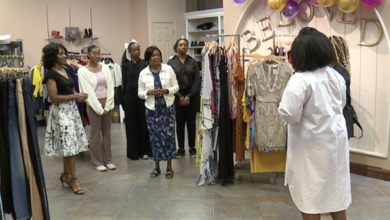What 20 Years Of Angel Investing Taught Us About Driving Progress For Women Entrepreneurs

By Jo Ann Corkran and Loretta McCarthy
Twenty years ago, the landscape of angel investing bore scant traces of female presence, with women representing a mere 5% of all angel investors and 3% of funded companies. Fast-forward to 2022, and the scenario has transformed dramatically, with women now accounting for 40% of angel investors and 31% of angel-funded companies.
This shift is not just a numeric increase; it’s a seismic evolution reflecting broader changes in society and the business world.

Our own journey started in 2004 with Golden Seeds, a national angel network that invests exclusively in early-stage companies led by women.
We were met with much skepticism. Yet, our conviction was fueled by two undeniable trends: the burgeoning number of women-led businesses, and the growing capital, skills and networks of women to invest in startups.
Since then, the idea of investing in women-led businesses has gained substantial traction. Golden Seeds’ investments of more than $180 million in nearly 250 companies — which have in total raised an additional $2 billion — stand as a testament to the economic and social impact of women entrepreneurs and investors.


However, declaring success is premature. Despite the progress in seed investing, there is still a major disconnect between the innovation women are leading and the pace at which venture capital is realizing these opportunities.
How is it possible that women can lead half of the new businesses in the U.S. and still more than 80% of VC-funded deals in 2023 went to all-male teams? It’s equal parts baffling and frustrating.
Reflecting on our experiences, including both successes and challenges, we’ve identified meaningful ways the venture capital community can join us in our mission to direct additional capital and other forms of support to women-led startups.
Insights for the venture ecosystem
First, the compelling impact of women’s leadership on company performance cannot be overstated. Research consistently shows that gender-diverse teams and companies led by women outperform their peers financially. Last year, McKinsey reported that companies with gender-diverse executive teams are 39% more likely to achieve financial outperformance.
Similarly, BlackRock found that companies led by women CEOs have almost consistently outperformed those led by men over the past decade. The Impact Group and BCG further solidify this evidence, showing that gender-balanced boardrooms are nearly 20% more likely to improve business outcomes, and businesses founded by women deliver 2.5x higher revenue per dollar invested than those founded by all men.
This data isn’t just numbers — it’s a clear indication that diversity is a strategic advantage.
Second, the venture capital world has often relied on pattern recognition — investing in entrepreneurs who fit a familiar mold, often favoring serial entrepreneurs with a track record of successful exits. This methodology, while comfortable, has led to missed opportunities and overlooked innovation. The bias has inadvertently sidelined some of the most promising ideas, particularly those developed by women and minorities.
Third, the venture ecosystem has traditionally been concentrated on the coasts, overlooking the rich diversity and potential of startups nationwide. In 2022, 44% of funded angel deals occurred outside the traditional VC hubs, indicating a significant pool of untapped potential across the country.
Lastly, the inclusion of more women in decision-making roles within VC firms can drastically alter funding dynamics. Research from Babson College’s Diana Project indicates that when a VC firm includes at least one woman partner, the likelihood of a woman entrepreneur being funded increases by 2x to 3x. Yet, women constitute less than 20% of decision-makers in U.S. VC firms, underscoring a critical area for improvement.
Toward a more inclusive future
After two decades of pioneering investment in women-led startups, we stand at a crossroads where investing in women is not just an emerging trend but a mature movement. Today, with robust data and the cumulative wisdom of years, the impact of women as entrepreneurs and investors is undeniable. Yet, the venture community’s evolution toward gender equity and inclusivity is still ongoing.
To build a better venture ecosystem, what’s needed is not just recognition of past successes but an unwavering commitment to open new pathways for diverse entrepreneurs to access necessary funding and support.
The future of venture capital, infused with the insights and leadership of women, promises not just better outcomes for women entrepreneurs but unparalleled economic growth and innovation for all.
Loretta McCarthy is co-CEO and managing partner of Golden Seeds, an investment organization that invests in women-led startups. At Golden Seeds, she manages the national network of nearly 300 members and has been a frequent speaker domestically and internationally about early-stage investing and women entrepreneurs. Previously, she served as executive vice president and chief marketing officer at OppenheimerFunds and was an executive at the American Express Co.
Jo Ann Corkran is co-CEO and managing partner of Golden Seeds, where she manages the deal flow and post-investment processes. She is also a general partner of three Golden Seeds venture funds that invest in early-stage companies with gender-diverse management teams. Previously, Corkran was managing director at Credit Suisse Asset Management, Credit Suisse, and First Boston. She currently serves on the board of directors for Work Truck Solutions, a commercial vehicle inventory and marketing solutions company, and EliseAI, a machine-learning company that uses conversational AI to transform housing and healthcare.
Illustration: Dom Guzman


Stay up to date with recent funding rounds, acquisitions, and more with the
Crunchbase Daily.



